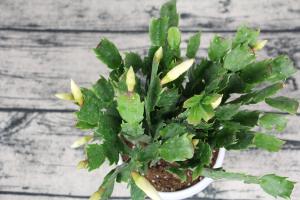What to Plant with Tomatoes
If you're a gardener, you know that planting tomatoes is a must-have in your garden. However, the question often arises: what to plant with tomatoes? Companion planting is an effective way to improve the health, productivity, and flavor of your tomatoes. In this article, we'll explore the best plants to companion with tomatoes.
Companion Planting with Tomatoes
Companion planting refers to the practice of planting complementary crops together to promote growth and protect the plants from pests, diseases, and other challenges. When it comes to companion planting with tomatoes, there are a few tried-and-true options that have proven to be successful.
1. Basil
Basil is a popular herb that grows well with tomatoes. Not only does it have a pleasant aroma that can repel pests, but it can also improve the flavor of your tomatoes. Plant basil near your tomatoes to keep pests away and enjoy a flavor boost.
2. Marigolds
Marigolds are a great companion plant for tomatoes because they can repel pests and attract beneficial insects like ladybugs and lacewings, which will eat aphids and mites that can harm your tomato plants. Plant marigolds around the edges of your garden or in between your tomato plants for the best results.
3. Borage
Borage is a plant that attracts pollinators like bees and butterflies, which are crucial for fruit development in tomatoes. In addition, the flowers of borage can attract predatory insects like wasps, which can prey on pest insects that can harm your tomatoes.
Other Options for Companion Planting
There are many other plants that can be companion-planted with tomatoes, including:
- Nasturtiums: Nasturtiums can attract aphids, which can protect your tomato plants from infestation.
- Thyme: Thyme can repel whiteflies, which are a common pest for tomato plants.
- Garlic: Garlic can repel pests and improve the flavor of your tomatoes.
Factors to Consider
When it comes to companion planting, it's important to consider a few factors to ensure the success of your garden. First, make sure that you're planting compatible crops together. Some plants can be detrimental to tomatoes, so do your research before you start planting.
Additionally, make sure that you're spacing your plants correctly. Crowded plants can create competition for nutrients and resources, which can harm your tomato plants.
Finally, make sure that you're providing your tomato plants with the right conditions to thrive. This includes proper soil, water, and sunlight, as well as regular maintenance to keep pests and diseases at bay.
Conclusion
Companion planting with tomatoes can be an effective way to improve the health, productivity, and flavor of your garden. By planting complementary crops like basil, marigolds, and borage, you can repel pests, attract beneficial insects, and improve fruit development. However, it's important to do your research and consider the needs of your plants to ensure success.

 how many times do yo...
how many times do yo... how many planted tre...
how many planted tre... how many pine trees ...
how many pine trees ... how many pecan trees...
how many pecan trees... how many plants comp...
how many plants comp... how many plants can ...
how many plants can ... how many plants and ...
how many plants and ... how many pepper plan...
how many pepper plan...































